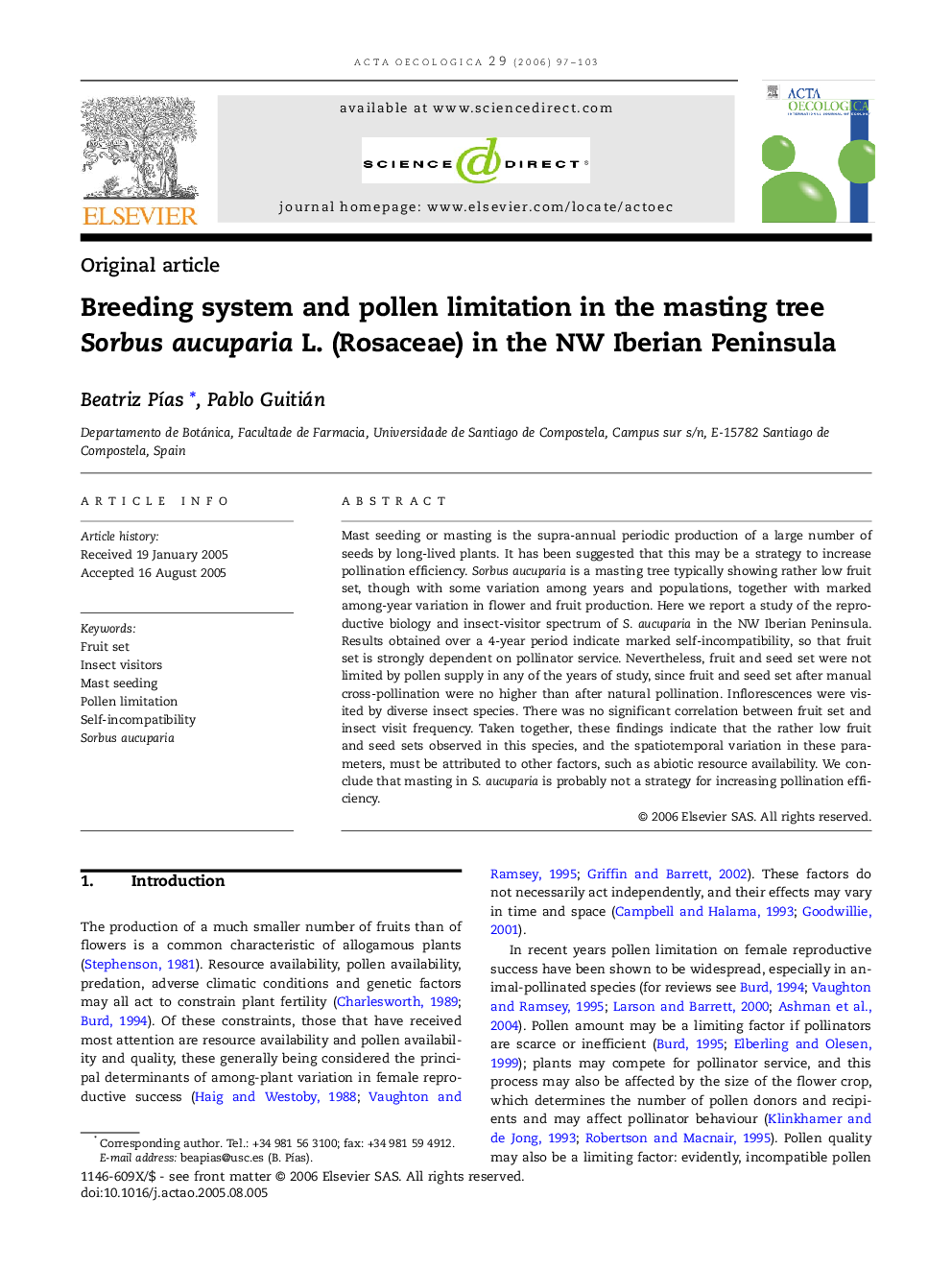| Article ID | Journal | Published Year | Pages | File Type |
|---|---|---|---|---|
| 4381412 | Acta Oecologica | 2006 | 7 Pages |
Abstract
Mast seeding or masting is the supra-annual periodic production of a large number of seeds by long-lived plants. It has been suggested that this may be a strategy to increase pollination efficiency. Sorbus aucuparia is a masting tree typically showing rather low fruit set, though with some variation among years and populations, together with marked among-year variation in flower and fruit production. Here we report a study of the reproductive biology and insect-visitor spectrum of S. aucuparia in the NW Iberian Peninsula. Results obtained over a 4-year period indicate marked self-incompatibility, so that fruit set is strongly dependent on pollinator service. Nevertheless, fruit and seed set were not limited by pollen supply in any of the years of study, since fruit and seed set after manual cross-pollination were no higher than after natural pollination. Inflorescences were visited by diverse insect species. There was no significant correlation between fruit set and insect visit frequency. Taken together, these findings indicate that the rather low fruit and seed sets observed in this species, and the spatiotemporal variation in these parameters, must be attributed to other factors, such as abiotic resource availability. We conclude that masting in S. aucuparia is probably not a strategy for increasing pollination efficiency.
Related Topics
Life Sciences
Agricultural and Biological Sciences
Ecology, Evolution, Behavior and Systematics
Authors
Beatriz PÃas, Pablo Guitián,
